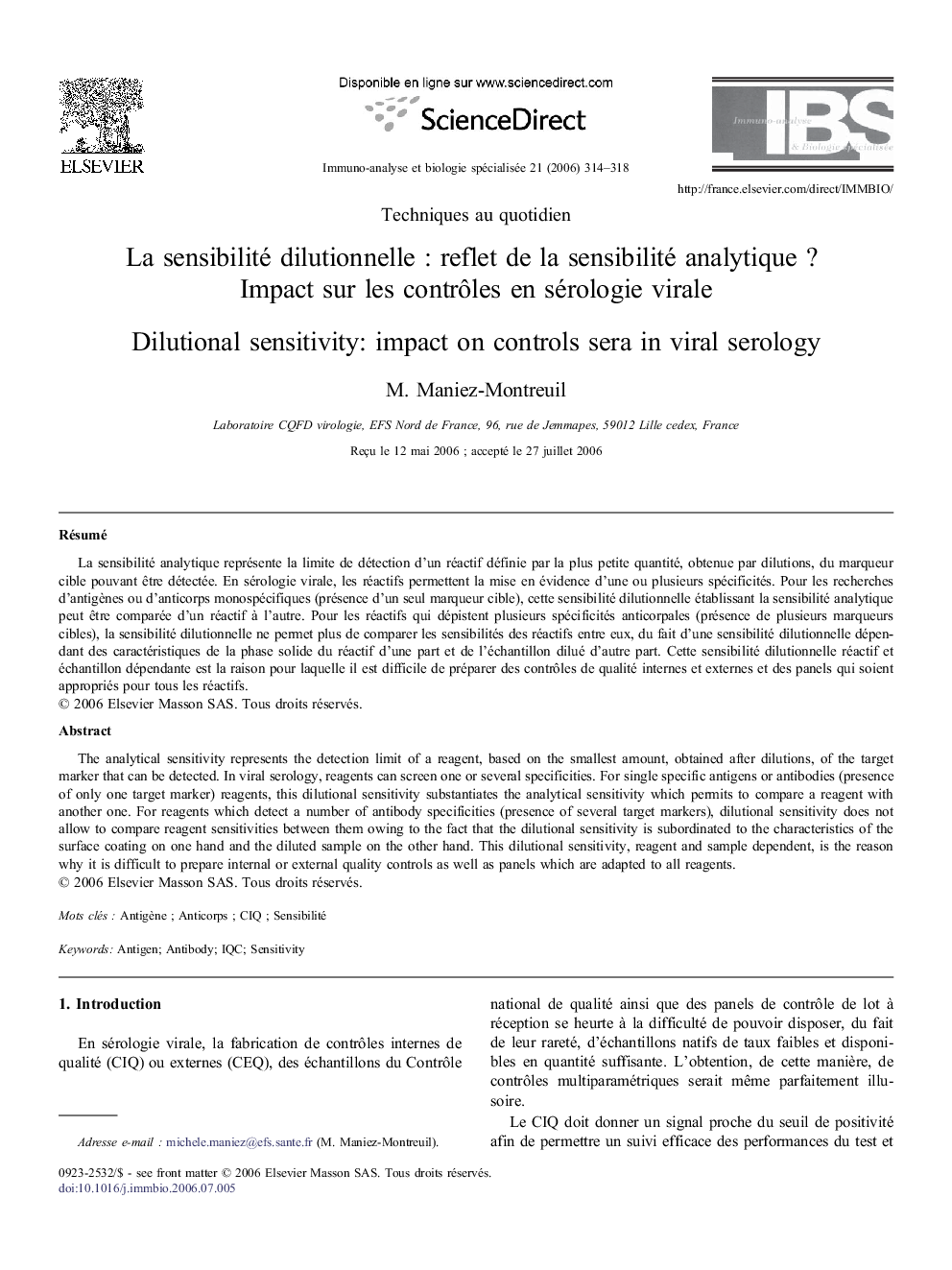| Article ID | Journal | Published Year | Pages | File Type |
|---|---|---|---|---|
| 8471946 | Immuno-analyse & Biologie Spécialisée | 2006 | 5 Pages |
Abstract
The analytical sensitivity represents the detection limit of a reagent, based on the smallest amount, obtained after dilutions, of the target marker that can be detected. In viral serology, reagents can screen one or several specificities. For single specific antigens or antibodies (presence of only one target marker) reagents, this dilutional sensitivity substantiates the analytical sensitivity which permits to compare a reagent with another one. For reagents which detect a number of antibody specificities (presence of several target markers), dilutional sensitivity does not allow to compare reagent sensitivities between them owing to the fact that the dilutional sensitivity is subordinated to the characteristics of the surface coating on one hand and the diluted sample on the other hand. This dilutional sensitivity, reagent and sample dependent, is the reason why it is difficult to prepare internal or external quality controls as well as panels which are adapted to all reagents.
Related Topics
Life Sciences
Biochemistry, Genetics and Molecular Biology
Cell Biology
Authors
M. Maniez-Montreuil,
